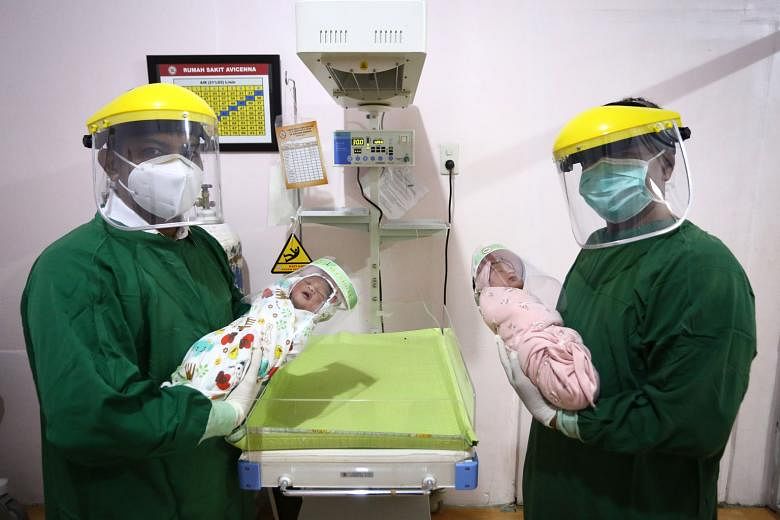Stay home and make babies? As condoms and other forms of birth control are unavailable to a growing number of Indonesians during the Covid-19 pandemic, the world's fourth-most populous nation may be facing a baby boom.
The National Population and Family Planning Board (BKKBN), the authority overseeing the country's family planning programmes, found that in March, about 10 per cent more of its acceptors had difficulties accessing birth control, based on reports it received from 34 provinces. BKKBN has 28 million acceptors of its family planning methods nationwide.
The one-month decline in contraceptive use alone could push up pregnancies by 15 per cent, or around 420,000 pregnancies, within a month to three months, according to its estimate. A further drop within three months will increase pregnancies by up to 30 per cent, or above 800,000, within another few months.
Indonesia, home to nearly 270 million inhabitants, annually welcomes 4.8 million births.
The decrease in contraceptive use occurred across all kinds of methods, including contraceptive implant, injection and vasectomy, the board's chief Hasto Wardoyo said. Implants were down by 40 per cent, for instance, while vasectomies plunged by 90 per cent.
"With the pandemic, the access to contraception has shrunk. Many clinics have shut, while those that remain open have limited the number of people they serve," he told The Straits Times.
Mr Hasto added: "The danger is seen in people who regularly use contraception and then stop. That will create dropouts."
The absence of contraception, Mr Hasto noted, may cause unwanted pregnancies, which could take a psychological toll on women and have longer-term repercussions, such as stunted development in children of poor families that cannot afford proper nutrition.
The pandemic is "bad timing" for women to get pregnant, as many are unable to obtain proper healthcare services, said Mr Hasto, who added: "It's better for couples to use contraceptive methods now."
This appears to be the sentiment among Italians, with more than 80 per cent of those surveyed by University of Florence researchers saying they did not plan to conceive during the pandemic, with a third of them abandoning previous plans to have a child.
-
15%
The one-month decline in contraceptive use alone could push up pregnancies by this percentage, or around 420,000 pregnancies, within a month to three months, according to the National Population and Family Planning Board's estimate.
30%
A further drop within three months will increase pregnancies by up to this percentage, or above 800,000, within another few months.
4.8 million
Number of births that Indonesia, home to nearly 270 million inhabitants, welcomes annually.
Indonesia is among a number of countries, however, anticipating a baby boom as a result of measures encouraging people to stay home to curb Covid-19 transmission.
Dr Augustina Situmorang, a demography expert at the Indonesian Institute of Sciences, predicts a jump in the number of pregnancies in Indonesia as people have limited access to contraception.
She also emphasised that the rise in pregnancies will likely occur among women from low-income families who largely depend on free contraception provided by the BKKBN, and young women who lost their jobs in the cities, returned to hometowns and were forced into marriage by social norms.
"The family planning field officers must change the strategy now. They must reach out to people and deliver contraceptive tools at home and they can cooperate with health community centres to get the data," said the researcher on family and health issues.
Mr Hasto has said that BKKBN is deploying its family field officers to give out free condoms and contraceptive pills while distributing food aids to poor families. It will also kick off a campaign to recruit one million new family-planning acceptors next month.











